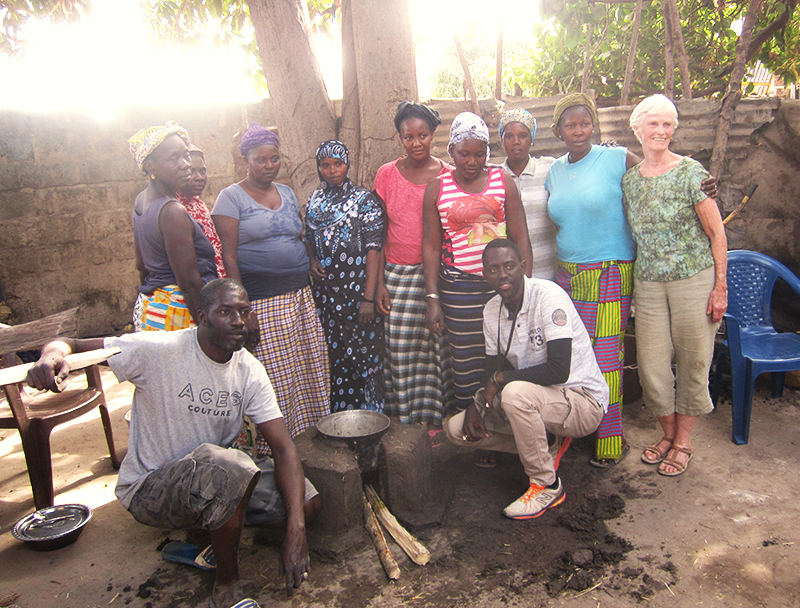For ten years, CREATE! has worked with rural communities across Senegal on sustainable development projects. CREATE! has hosted numerous improved cookstove trainings to show people how they can create a healthier, safer, and more sustainable environment in their kitchens. For the first time, CREATE! has expanded these trainings beyond Senegal and into its neighboring country The Gambia. CREATE! Country Director, Omar Ndiaye Seck, and CREATE! Field Coordinator, Amadou Diouf, traveled to The Gambia mid-January this year to host CREATE!’s first improved cookstove training in a new country and expand our alliance for clean cookstoves.
Collaborating with NGO Future for Farato
Thanks to CREATE! Board Member Mary-Kay, CREATE! connected with a Gambian NGO called Future for Farato. Mary-Kay had previously been introduced to one of Future for Farato’s Founders, Ellen McGill. Mary-Kay recalled, “One of the things that Ellen mentioned was that women and children in Farato sometimes had issues with burns and other health or convenience-related problems due to cooking on open fires. So, I gave her the [CREATE!] improved cookstove pamphlet.” A few years later, CREATE! and Future for Farato reconnected and decided to host an improved cookstove training in The Gambia. “It just seemed like such a natural connection,” Mary-Kay told us. “The Gambia is so close; they speak Wolof, so I knew they could communicate, and it was clear that they could benefit from learning how to make improved cookstoves.”
Hosting Our First Improved Cookstove Training in The Gambia
On January 13, Seck and Diouf traveled to The Gambia to host the first CREATE! improved cookstove training outside of Senegal. Women in Farato prepared for the training by collecting the free materials to make the stove. This included clay, sand, dry grass, and water. CREATE!’s improved cookstove is made from all free and locally available materials so everyone can participate in building their own clean cookstoves!
Check out photos from the improved cookstove training below:
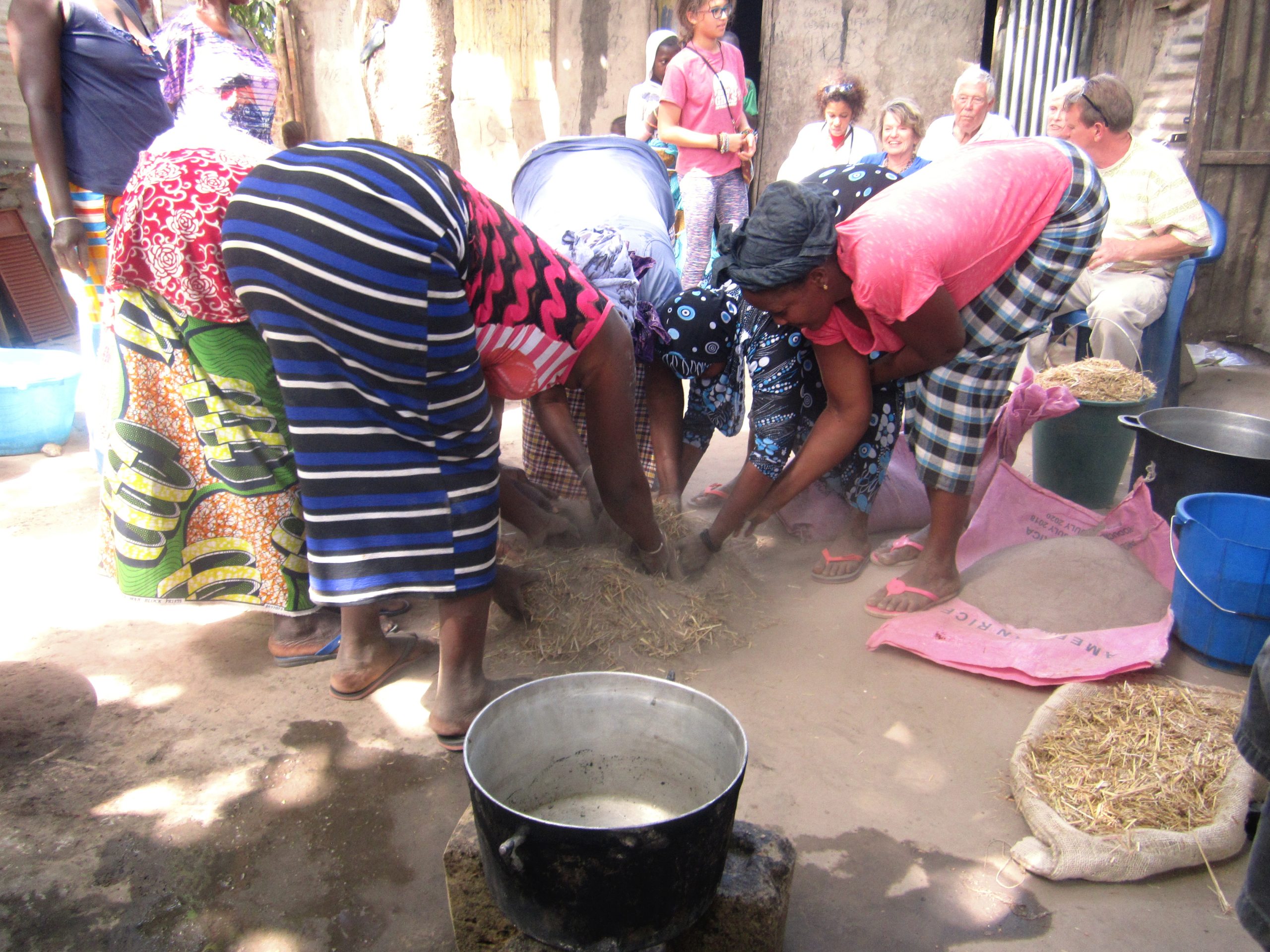
Participants mix the ingredients of clay, sand, dry grass, and water together and form fist-sized balls.
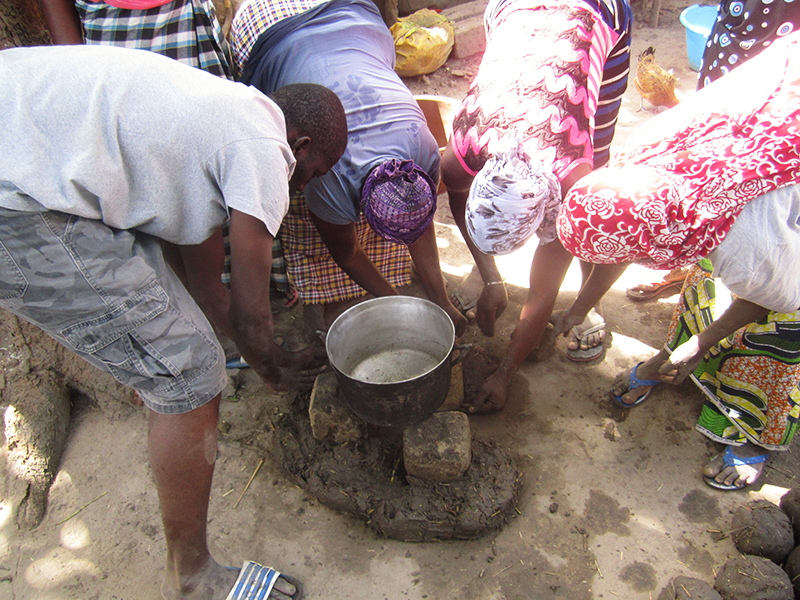
After placing a traditional pot on three equally spaced bricks, participants begin to build the walls of the cookstove with the balls of the clay-sand mixture around the cooking pot.
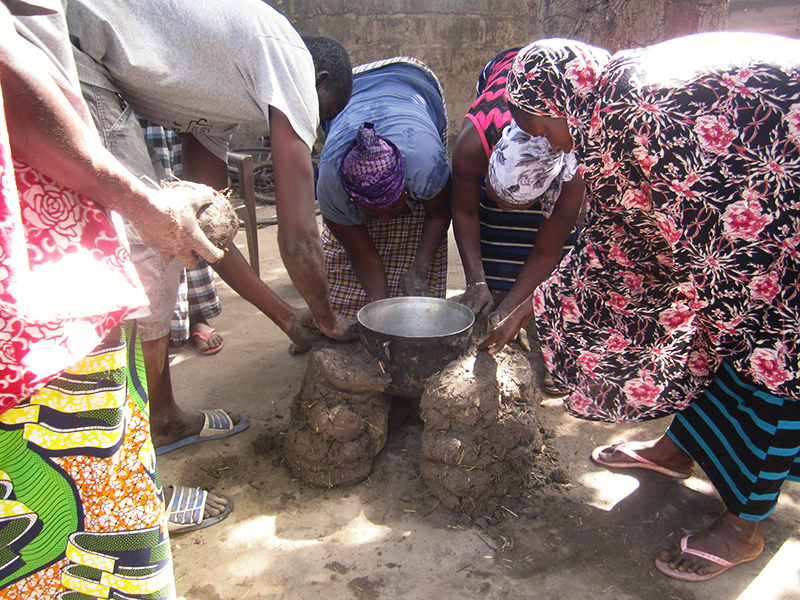
As they build the walls higher, participants make sure the walls are straight and leave a small opening to insert firewood.
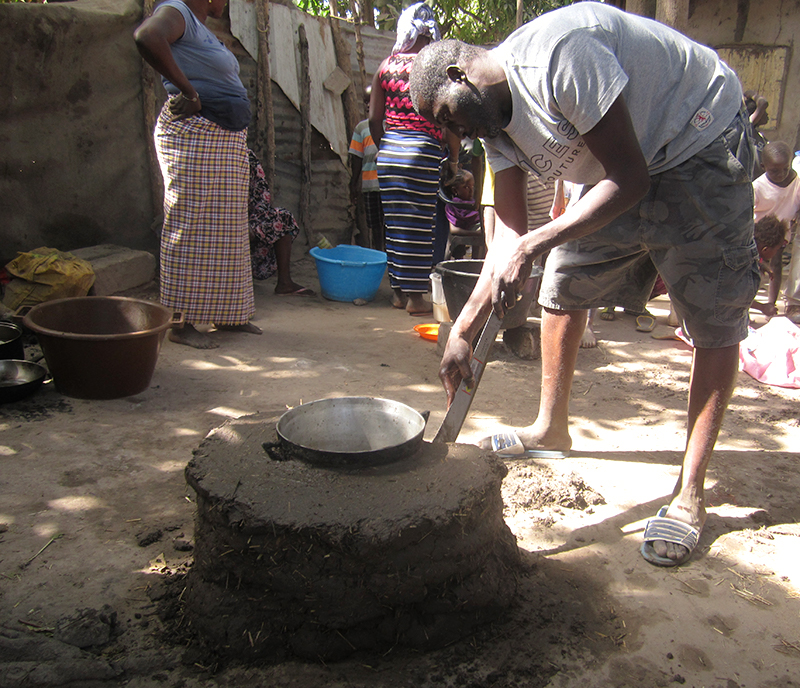
Once the walls are built up to just below the lip of the pot, participants can use water and a machete to smooth the sides of the walls. Two chimneys are cut inside of the stove before the inside walls are smoothed.
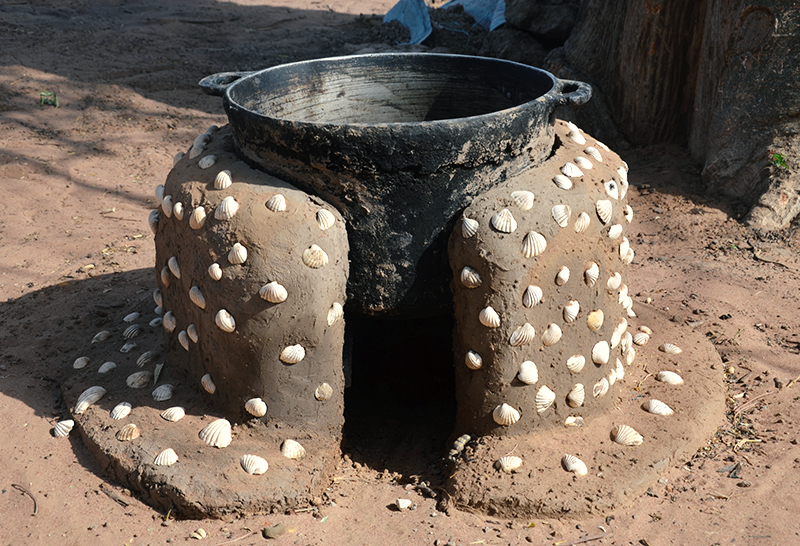
The improved cookstove takes three days to dry. During this process, the cooking pot is removed and twisted three times per day to ensure it doesn’t stick. Participants can decorate their stoves for a unique look like the one above!
The Benefits of Using Improved Cookstoves
The kitchen is often referred to as the heart of one’s home. It’s where families and guests gather together to share meals and conversation, and children commonly play while their parents prepare food. Traditionally, many rural communities use open fires for all of their cooking. Unfortunately, this method can be damaging to the environment, dangerous for children, and create a very smokey and unhealthy kitchen. However, the improved cookstove’s outer protective walls enclose the flames, making the kitchen a safe and cleaner area for children to play and guests to gather. Many women have also told us they use 60-70% less firewood with an improved cookstove. This means less time is spent collecting sticks and less money is spent buying wood.
A Global Alliance for Clean Cookstoves
CREATE! enjoyed collaborating with Future for Farato to spread the improved cookstove trainings across borders. “The stove is a brilliant idea – easy, free and effective,” Ellen told us. “We were at Mama Janko’s house two days after your [CREATE!’s] visit. She had used the stove for the first time the night before and was beyond delighted with the small amount of wood she had burned for dinner. All the women plan to build a stove, may the word spread to the whole area!”
Over his eight years with CREATE!, Seck has engaged in numerous improved cookstove trainings across rural Senegal. He enjoyed spreading the knowledge of clean cooking across borders and hopes to continue a partnership. “In the near future, we intend to revisit the site to ensure follow-up and see if the training has been properly mastered,” Seck told us. “Additionally, there will be an opportunity to intervene in this area and help these communities as we do in Senegal.” We are thrilled to expand the alliance for clean cookstoves across regions and borders. Everyone around the world deserves to have a safe, clean kitchen!
Consider donating to CREATE! today to help the spread of renewable energy projects and invest in a sustainable future in West Africa.

